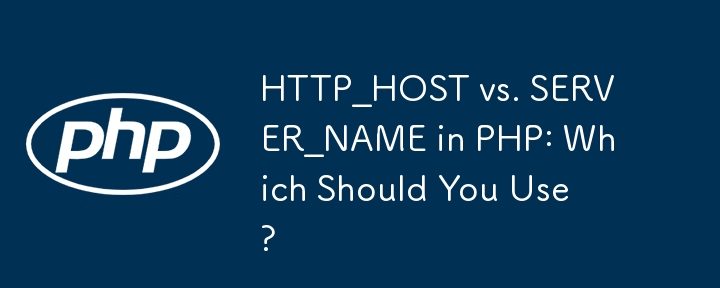

HTTP_HOST vs SERVER_NAME in PHP
When dealing with HTTP headers in PHP, two variables, $_SERVER['HTTP_HOST'] and $_SERVER['SERVER_NAME'], often come into play. Understanding their differences is crucial for effective web development.
HTTP_HOST
HTTP_HOST is a client-provided value present in the HTTP request header. It represents the target host that the client specified when making the request. This value can be controlled by the user through browser settings, proxy configurations, or malicious intent.
SERVER_NAME
SERVER_NAME, on the other hand, is a server-configured value. It is defined in the server configuration settings, such as Apache's ServerName directive or Nginx's server_name directive. SERVER_NAME represents the server's understanding of its hostname or domain name.
Usage Considerations
The choice between using HTTP_HOST or SERVER_NAME depends on the intended purpose.
Reliability Concerns
Although HTTP_HOST offers access to client-provided information, it is less reliable due to its susceptibility to client-side manipulation. SERVER_NAME, however, is generally more reliable as it is set by the server configuration. Nonetheless, it's crucial to ensure that the web server's SERVER_NAME configuration is correct and reflects the intended hostname or domain name.
The above is the detailed content of HTTP_HOST vs. SERVER_NAME in PHP: Which Should You Use?. For more information, please follow other related articles on the PHP Chinese website!




